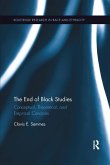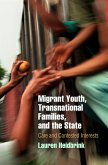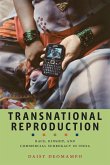From its inception, black studies has been transnational. Pioneering intellectuals such as W. E. B. Du Bois, George Washington Williams, Anna Julia Cooper, Nicolas Guillen, C. L. R. James, Oliver Cox, and Zora Neale Hurston shared a transnational sensibility shaped by the antiracist and anti-imperialist politics of the nineteenth and twentieth centuries. In recent years, however, much scholarship regarding blackness has been presented under the rubric of pan-Africanism or the African diaspora, terms that imply an inquiry solely into what it means to be "of Africa." Increasingly, in an era of globalization and postcolonialism, such terms have become insufficient for capturing what it means to be black in a global context. Transnational black studies--an interdisciplinary arena of knowledge rooted in political struggle--has reemerged to rectify this discursive insufficiency in contemporary scholarship. The essays, interviews, and reviews in this special issue of "Radical History Review represent the best of the new of this very old tradition of transnational black studies. One contributor explores how "racial citizenship"--the idea of belonging and solidarity across the black world, developed as a result of knowledge formed out of transnational linkages--is employed by Cubans of color fighting against racial discrimination in public spaces in Havana. Another, by outlining a research agenda for the study of African slavery in the Middle East and South Asia, reminds us that the African diaspora is global. In a discussion of a paradigm shift from the national to the global, yet another author makes a singular contribution to this collection by locating new spaces for identity formation "intransit."
Hinweis: Dieser Artikel kann nur an eine deutsche Lieferadresse ausgeliefert werden.
Hinweis: Dieser Artikel kann nur an eine deutsche Lieferadresse ausgeliefert werden.








